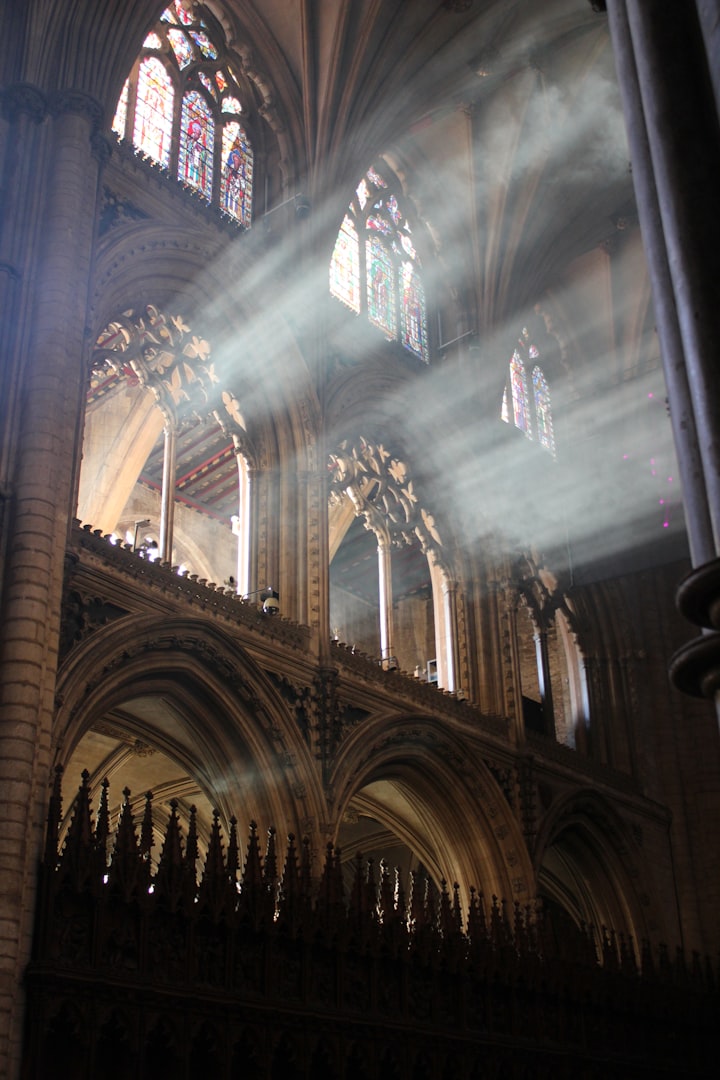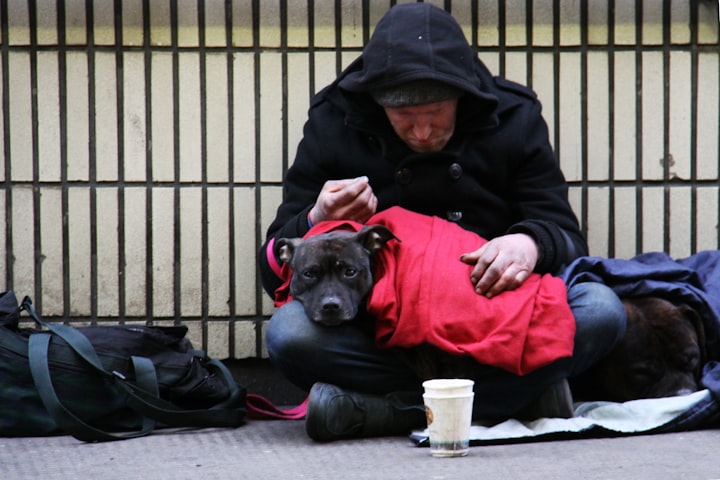My Holy Places
How I discovered the sacred in all things

When I was little, one of my favorite places was the big cathedral in my hometown.
Yup, that’s right. Let me explain. I grew up Catholic. It was not an extreme version of Catholicism but a way of life. Nobody questioned it. People were born and raised that way and lived in their Catholic parish; many lived there until they died.
Throughout my childhood, I was steeped in Catholic rituals and traditions, attending Sunday mass, my first communion, and going to confession.
The only extremes were the infusion of guilt, the belief that we were born sinners, and the collective brainwashing of life being a never-ending penance that ended in one of two places: heaven or hell.
I was scared and fascinated by the medieval depictions of hell in the paintings and sculptures in the church, and I was drawn to them like a horror movie. But I am getting ahead of myself.
I wouldn't say I liked that the boys could become altar boys, and I couldn’t. I would have killed for the job because, in my mind, it meant being closer to God and getting a few extra brownie points for going to heaven.
Also, I wouldn't say I liked that the protestant kids in my neighborhood didn’t have to go to mass each Sunday. They also did not go to confession. They had more time off from feeling guilty.
I found confessions fascinating: the whole setup of the confessionals, the semi-darkness, and the priest behind the screen who listened.
“Bless me, Father, for I have sinned,” followed by a litany of admissions such as “ I lied to my mom last Tuesday, I stole three pieces of candy during lent, and harbored fantasies of revenge against my sister on at least two occasions since the beginning of the weekend,” and so on which was followed by penance such as reciting the Lord’s prayer, the rosary, the Hail Mary ten times.
On occasion, I omitted parts of the truth: that I wanted to hit my brother, that I wanted to run away when my parents fought with each other.
What was the pastor thinking when the sinners came to confess? Did he confess, too? Or was he exempt because God employed him?
The bishop or the pope, who was practically a Saint in my mind, probably never confessed anything. Why else would the pope be God’s CEO?
As I got older, I desperately wanted to talk to someone about my doubts, whether there was an escape from being a sinner other than waiting for the afterlife. My most significant doubt was about the man himself, God.
How could God stand by and watch people starve and get killed? What is God doing all day long? Why does he let wars happen? Can I please get a sign from God? Or at least from one of the Saints?
After devouring books about Saints, I prayed extra hard in front of their statues, hoping to get a signal, such as a voice coming through, a tear rolling down from Madonna’s cheek, or a blink of an eye, but nothing. The statues remained, well, just statues; no miracles for me.
Aside from my questions for God, I had many worldly questions. Why did I not always want to honor my parents? Why did I have to confess that I lied? Lying was a private matter as far as I was concerned.
Why did I like material things? How could I become a Saint? Would I have to renounce my desire for ice cream? Would I have to feed the poor to qualify? Where would I find “the poor” other than in Africa?
Would I have to pretend that I am not interested in boys, that I wasn’t curious about kissing? Was that what they called lusting for the sins of the flesh? What does it mean to be modest?
When I was in the protected space of the confessional, I made several attempts to get the discussion going with the pastor, but I quickly discovered that he did not know the answers. The priests in my church were friendly but seemed helpless, other than suggesting that I should pray more. I omitted my question about kissing, as I sensed they weren’t experts in this field.
When I was in the thick of adolescence, I stopped going to confession. I still went to mass, but I had given up on confessing.
I was about fourteen years old when I found out that my friend Jacob had died in a motorcycle accident. He was sixteen years old. I used to see him each year during summer vacation.
It shattered everything for me. Why would God let this happen? Why? I gave it one last try and went to mass daily for several weeks. Other than myself, there were only older women at church. I prayed hard and was hoping for a sign from God. All I could think of was that Jacob must feel so cold and alone in his grave and that I would never see him again. He was the first boy I wanted to marry.
God did not talk to me. He was silent. I got fed up with Jesus and his dad and stopped attending church.
Breaking from being a habitual Catholic was painful because I left the comfort of the familiar. However, it catapulted me into a profound spiritual quest. It became evident that the concept of God was more all-encompassing than what the church had taught me.
In my late teens, I immersed myself in psychology and was profoundly moved by Carl Jung’s work. I then began meditating and studying Eastern philosophies.
Initially, it was strange to transition from Christian prayer to Buddhist practices and meditation, but soon, it became my home state, and I felt a sense of inner freedom.
"If you do not change direction, you may end up where you are heading.” ― Siddhārtha Gautama
Over time, I became a student of what the Buddhists call the Noble Eightfold Path: right view, right resolve, right speech, right conduct, right livelihood, right effort, right mindfulness, and right samadhi, which is a lifelong practice.
Looking back at my quest, I am grateful for the schooling that I received through my Catholic upbringing. I learned to ask many questions.
“Do not believe in anything simply because you have heard it. Do not believe in anything simply because it is spoken and rumored by many. Do not believe in anything simply because it is found written in your religious books. Do not believe in anything merely on the authority of your teachers and elders. Do not believe in traditions because they have been handed down for many generations. But after observation and analysis, when you find that anything agrees with reason and is conducive to the good and benefit of one and all, then accept it and live up to it.” ― Buddha Siddhartha Guatama Shakyamuni
About the Creator
Ute Luppertz ✨
I am an animal lover, a meditator, and a wisdom keeper. I live my passion through writing about life and animals and working as a pet death doula and animal communicator.
You can learn more about me here: petspointofview






Comments (1)
Ute, this so resonates with me. I was kicked out of Catholic school in second grade for questioning the virgin birth story, which is common among all famous prophets, including Jesus, the Buddha, Mohammed, Perseus, and others. Questioning is a human right. Such a brave essay. I love it!!